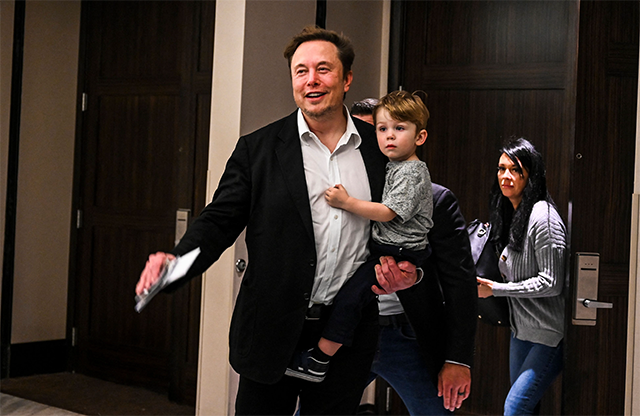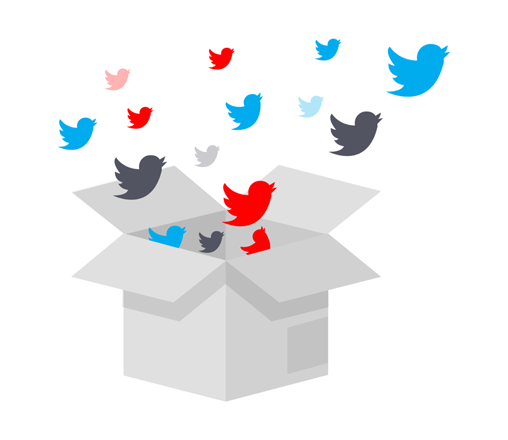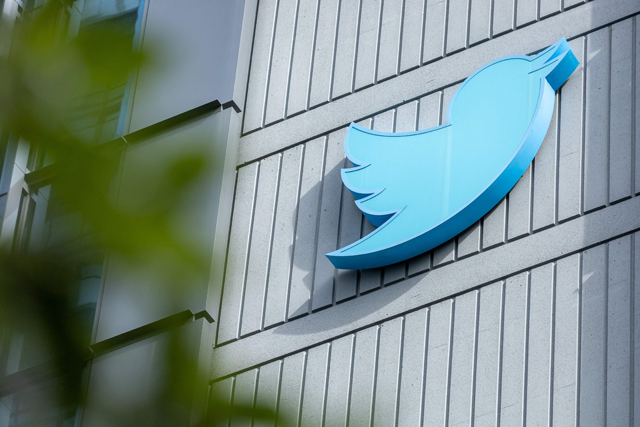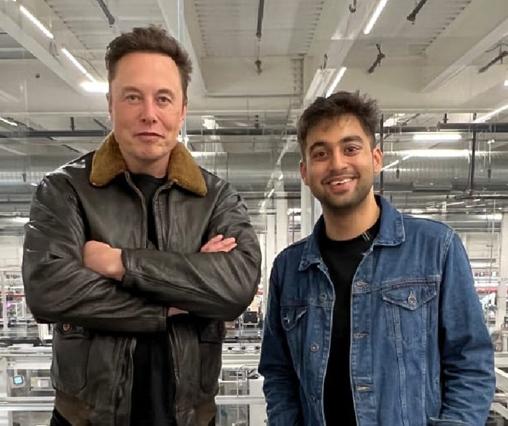You are here
Twitter’s Musk amplifies misinformation
By AFP - Apr 19,2023 - Last updated at Apr 19,2023

Twitter CEO Elon Musk holds one of his children after a keynote speech at the ‘Twitter 2.0: From Conversations to Partnerships’, marketing conference in Miami Beach, Florida, on Tuesday (AFP photo by Chandan Khanna)
WASHINGTON — Elon Musk promised to make Twitter the “most accurate source of information about the world”, but he has repeatedly used his own account to amplify false claims from some of the most notorious disinformers on the Internet, according to an AFP analysis of his online activity.
The posts show Musk drawing attention to misinformation about everything from the war in Ukraine to the attack on US Congresswoman Nancy Pelosi’s husband. Last week, the billionaire boosted a tweet that wrongly suggested doctors misdiagnosed flu cases as COVID-19 deaths.
“One of the greatest mysteries of COVID-19: Where did the flu go in 2020 and 2021?” an account called “KanekoaTheGreat” said, to which Musk replied: “Good question.”
It was one of at least 40 times the billionaire replied to the profile, which has promoted the QAnon conspiracy theory, since purchasing Twitter for $44 billion nearly six months ago. He has only replied to a handful of accounts more in that time.
Using data from PolitiTweet, a website that tracked public figures’ posts until Twitter cut off its access, AFP reviewed thousands of replies Musk published between late October and March.
He shared a fabricated CNN segment, called a made-up quote “wise words” and falsely claimed police escorted a rioter through the US Capitol on January 6, 2021. He amplified a post blaming mass shootings on LGBTQ individuals and endorsed a fake casualty count from Ukraine.
Musk has also downplayed COVID-19 and promoted spurious claims about vaccines causing blood clots, miscarriages and heart problems.
“We are running out of ‘conspiracies’ that turned out to be true!” the Twitter owner said in March, replying to a tweet that listed COVID-19 and vaccine safety among the “biggest media lies”.
Days later, he tweeted that the “best way to fight misinformation is to respond with accurate information”.
Experts say Musk’s activity is concerning — and not just because of his online influence.
“Musk has almost 135 million Twitter followers and forced his engineers to increase the reach of his tweets, so we should worry when he spreads misinformation,” Brendan Nyhan, a Dartmouth College professor who studies misperceptions in politics, told AFP.
“I’m most worried, though, about what these tweets reveal about the judgement of the person who determines the policies of a major social media platform.”
Researchers have tied Twitter’s recent policy changes — including Musk’s reinstatement of suspended accounts and its overhaul of verification practices — to spikes in misinformation.
NewsGuard, a company that assesses websites’ credibility, found accounts paying for Twitter’s subscription service are inundating the site with false claims.
Musk is driving attention to some of these accounts.
“Got the Elon Musk stamp of approval,” said “KanekoaTheGreat” on Telegram after one such reply.
A January study from the Institute for Strategic Dialogue, a London-based think tank, recorded a “staggering” increase in Musk’s interactions with right-wing accounts since acquiring Twitter, including several profiles other research identified as spreaders of US election misinformation.
Musk has repeatedly amplified posts from sources such as the pro-Donald Trump page “Catturd”, the anti-LGBTQ account “Libs of TikTok” and the conspiratorial website ZeroHedge.
Ian Miles Cheong, a far-right blogger, has received at least 60 replies from Musk — topping all but a few other profiles, according to AFP’s analysis. In one instance, Musk amplified a tweet blaming Joe Biden for an immigration program that started under Trump.
“Musk is elevating some of the worst voices on Twitter,” Nyhan told AFP. “These interactions are likely to increase the reach and prominence of the accounts.”
In some cases, the Twitter boss has helped mainstream false narratives.
After an intruder broke into Pelosi’s California residence and struck the lawmaker’s husband with a hammer in October, Musk tweeted a link to an article claiming he was drunk and quarrelling with a male prostitute. #Pelosigaylover trended on Twitter.
Court filings and footage of the incident disproved the claims, which stemmed from a site that had previously published misinformation. But the damage was done.
“It’s really sad for the country that people of that high visibility would separate themselves from the facts and the truth in such a blatant way,” Nancy Pelosi said at the time. “It is traumatising to those affected by it. They don’t care about that, obviously.”
Twitter responded to AFP’s requests for comment with the poop emoji, an auto-reply Musk launched in March.
Related Articles
SAN FRANCISCO — Elon Musk on Friday began his first full day leading Twitter, with critics and fans anxious to see how the planet’s richest
SAN FRANCISCO — Elon Musk relaunched a Twitter subscription service on Monday after a first attempt saw an embarrassing spate of fake accoun
PUNE, India — Not many people can boast of having candid conversations about planetary conquest with Elon Musk, but for Indian software engi
















